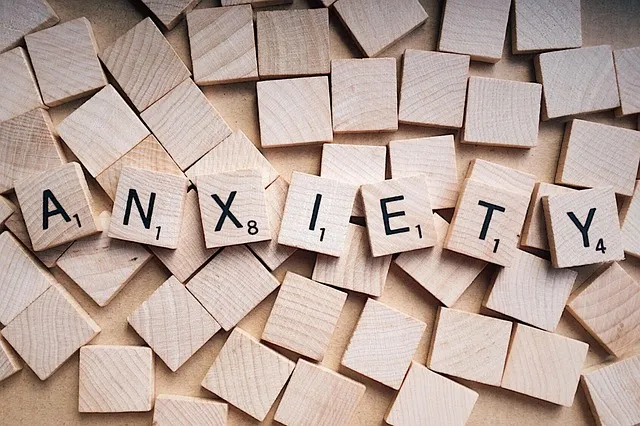Cultural competence and sensitivity are crucial for improving access to mental health services at institutions like Kaiser Centennial. By understanding and respecting diverse cultural backgrounds, Kaiser Centennial ensures patient-centered care that aligns with individual identities. Initiatives such as Mental Wellness Journaling Guidance, tailored social skills training, community outreach programs, and inclusive awareness campaigns aim to break down barriers faced by marginalized communities, foster trust, and revolutionize mental healthcare, ultimately helping individuals navigate and access services through Kaiser Centennial more effectively.
Cultural sensitivity in mental healthcare is essential for providing effective treatment and ensuring access to services. This article explores strategies to enhance cultural competence within Kaiser Centennial, leveraging a rich history of care. We delve into the barriers that hinder diverse communities from receiving quality mental health support and present actionable steps to create inclusive practices. By understanding the impact of cultural sensitivity, we can improve outcomes for all patients seeking mental health services through Kaiser Centennial.
- Understanding Cultural Competence in Mental Healthcare: A Kaiser Centennial Perspective
- Barriers and Challenges: How Cultural Sensitivity Impacts Access to Services
- Strategies for Culturally Sensitive Practice: Enhancing Mental Health Care at Kaiser Centennial
Understanding Cultural Competence in Mental Healthcare: A Kaiser Centennial Perspective

Cultural competence is a cornerstone in modern mental healthcare, especially when considering how to get mental health services through Kaiser Centennial or similar institutions. It involves understanding and appreciating the diverse cultural backgrounds and beliefs of patients, which can greatly impact their mental wellness journey. At Kaiser Centennial, we recognize that simply offering services isn’t enough; it’s about delivering care that resonates with each individual’s unique cultural identity.
This perspective is crucial when engaging in activities like Mental Wellness Journaling Exercise Guidance, where patients are encouraged to reflect on their experiences through a cultural lens. Additionally, promoting positive thinking and social skills training becomes more meaningful when tailored to different cultures, fostering an environment of trust and understanding. By embracing these practices, Kaiser Centennial aims to revolutionize mental healthcare, ensuring that every patient receives support that aligns with their cultural values and traditions.
Barriers and Challenges: How Cultural Sensitivity Impacts Access to Services

Cultural sensitivity plays a pivotal role in addressing barriers and challenges in accessing mental health services, especially for communities that have historically been marginalized or underrepresented. In the context of Kaiser Centennial, understanding and respecting diverse cultural backgrounds is essential to ensuring equitable access. Many individuals from minority groups face unique obstacles when seeking mental healthcare, including language barriers, limited cultural representation among providers, and a lack of culturally adapted services.
These challenges can significantly impact how people perceive and engage with mental health support. For example, the absence of therapists who share similar cultural backgrounds or practices may make certain therapeutic approaches seem foreign or less accessible. Compassion Cultivation Practices, which foster understanding and empathy, can be instrumental in building trust and encouraging individuals to open up about their experiences. Mental Health Awareness campaigns that recognize and value diverse cultural perspectives also contribute to breaking down these barriers, ultimately leading to increased participation in care and improved outcomes through Kaiser Centennial’s services.
Strategies for Culturally Sensitive Practice: Enhancing Mental Health Care at Kaiser Centennial

At Kaiser Centennial, enhancing mental health care through culturally sensitive practices involves a multi-faceted approach. One key strategy is to integrate community outreach programs that cater to diverse cultural backgrounds and beliefs. By partnering with local organizations and incorporating cultural perspectives into therapy sessions, healthcare providers can create a more inclusive environment. This not only improves access to mental wellness services but also fosters trust and understanding among patients from various communities.
Furthermore, implementing a robust Community Outreach Program can help reduce burnout among mental health professionals. By promoting cultural sensitivity, the program ensures that staff members are equipped with the necessary tools to address the unique needs of each patient. This holistic approach not only benefits individuals seeking mental health services through Kaiser Centennial but also contributes to a more equitable and effective healthcare system overall.
Cultural sensitivity is a cornerstone in providing effective mental healthcare, especially within diverse communities. By addressing barriers and implementing strategies outlined in this article, such as enhanced training, inclusive service delivery models, and cultural adaptation of practices, Kaiser Centennial can significantly improve access to mental health services for all. Understanding and respecting cultural nuances ensures that individuals from various backgrounds receive personalized care tailored to their unique needs, fostering better outcomes and a more inclusive healthcare environment.






